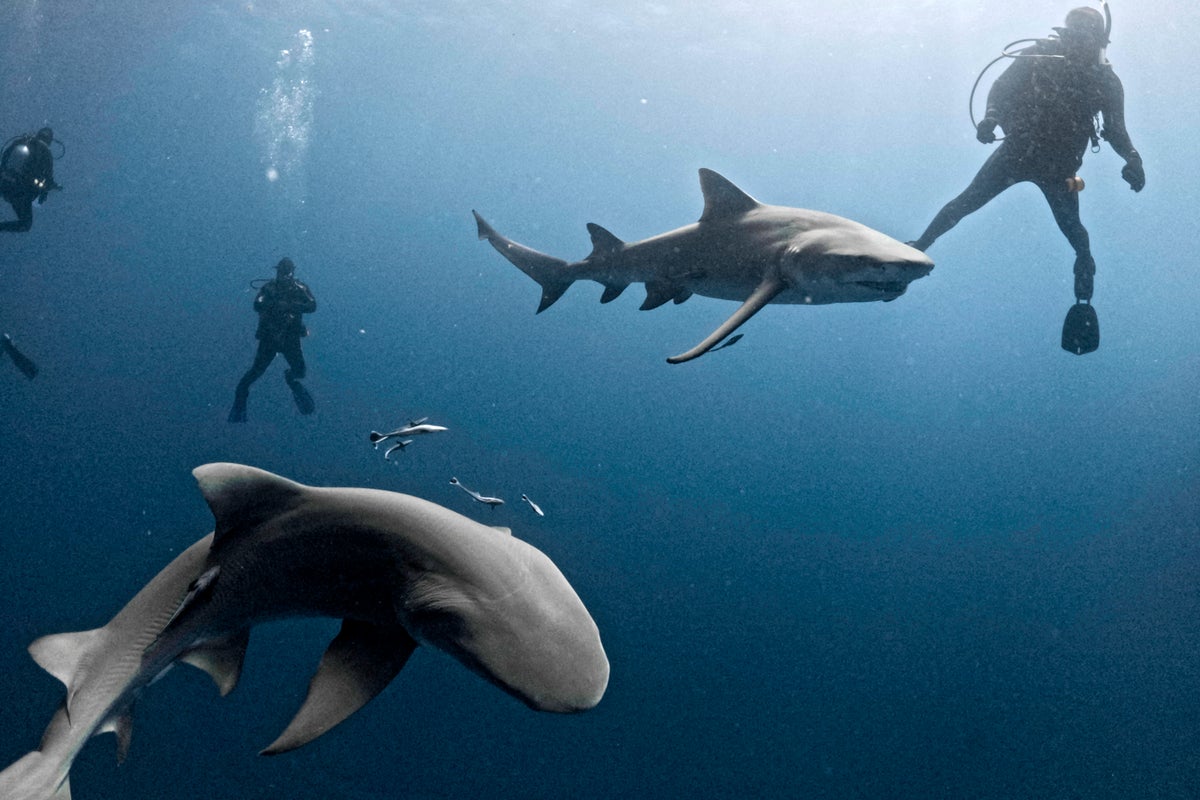A surfer was badly injured after he was attacked by a shark off the Canary Islands.
The man was using a hydrofoil board about two miles west of Fuerteventura on Sunday when the incident occurred in open waters. The Los Molinos area is known for occasional shark sightings.
After attacking his board, the shark sunk his teeth into the surfer’s leg, leaving behind two bloody wounds above the knee, local media reported. He managed to scramble back to the shore for safety and was later treated by emergency services.
Spanish TV channel Antena 3 described the wounds as “deep”.
While several shark species, including hammerheads and angel sharks, are known to swim in the area, they do not typically attack humans.
Authorities have warned beachgoers to proceed with caution when venturing far from the shore, local media said.
The shark attack is the latest in a series of similar incidents as holidaymakers head to the seaside. Earlier this week, a savage fish attacked an 85-year-old Italian woman while swimming in Majorca’s Palma beach.
And in April, a man died after a shark attack off the Mediterranean coast of Israel. The remains, discovered after a two-day search, were identified as those of the victim, whom Israeli media named as Barak Tzach, a man in his 40s and a father of four.
Environmental changes and increasing water temperatures are believed to push some marine species closer to the shore.
In a close encounter with a shark, beachgoers are advised to maintain eye contact and slowly move away, according to Florida Museum’s International Shark Attack File.
“If the shark tries to bite you: Hit the shark in the eyes and gills – sensitive areas that can be hurt regardless of personal strength; Hit the shark on the snout and push away – water-resistance weakens your punch,” the file added.
However, the number of shark bites recorded around the world last year is markedly down from 2023, according to the shark attack database. In 2024, there were only 47 unprovoked attacks, down by 22 from the previous year and well below the 10-year average of 67.

